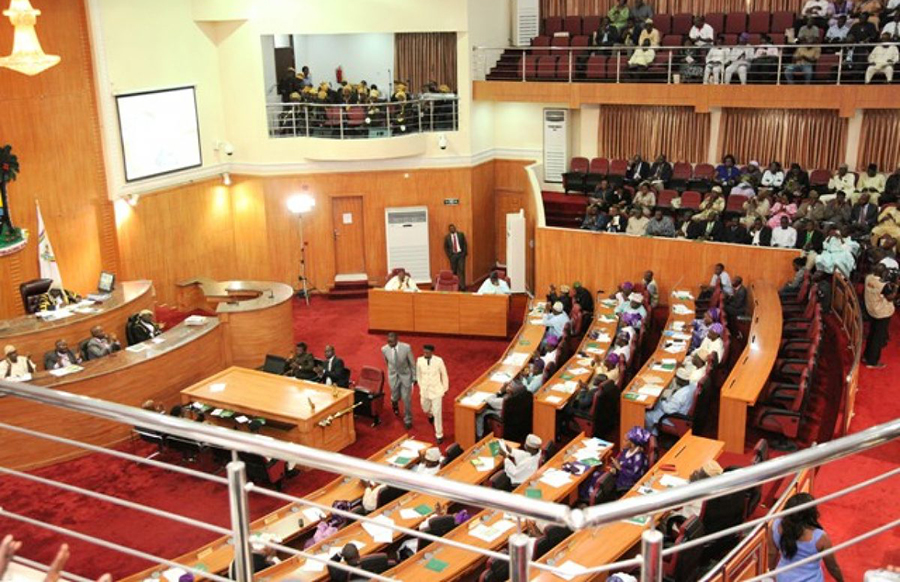NEWS
UNICEF, Stakeholders Task Nigeria on Health Aid Dependence
By Laide Akinboade, Abuja
The United Nations Children’s Fund (UNICEF) has tasked the Nigerian government to reduce dependence on foreign funding for healthcare, emphasising the need for greater self-sufficiency in budget allocations.
UNICEF Deputy Representative to Nigeria, Rowan Khan, gave the advice while speaking at the Primary Health Care (PHC) Memorandum of Understanding (MoU) Learning and Dissemination Event in Abuja,
He described the recent freeze on U.
S. foreign aid as a stark reminder of Nigeria’s funding vulnerabilities.“Looking at what is happening globally, we need to really reduce our reliance on others at all levels,” Khan stated.
“The U.S. decision has shaken us, but we saw this coming. We cannot forever depend on external support.”
Gombe State’s Deputy Governor, Manasseh Jatau, stressed local research investment, urging Nigerian states to develop vaccines using indigenous plants.
“We must take responsibility for our health. If donor support fades, a crisis awaits us,” Jatau warned.
The Country Manager of GAVI, Jesicca Crawford, praised governors for their commitment to PHC sustainability, while the team lead for Communicable and Non-Communicable Diseases at the World Health Organisation (WHO), Mya Ngon called for intensified efforts to reduce zero-dose immunisation rates.
The Senior Programme Manager for Immunisation at the Nigeria Governors Forum (NGF), Halima Muhammed, noting that targeted interventions had strengthened PHC systems and governance.
“These efforts have enhanced service delivery, increased demand generation, strengthened disease surveillance, improved governance, optimised human resources, fortified supply chains, and driven high-level advocacy to ensure sustained political commitment to PHC,” she said.
The PHC MoU Health Systems Strengthening Initiative, is a three-year partnership between GAVI, the Federal Ministry of Health, and UNICEF, operates in eight states: Gombe, Jigawa, Katsina, Kebbi, Niger, Taraba, and Zamfara to bolster immunisation and essential health services.
Environment
FG, Partners Urged to Act On Rangeland Conservation

The Federal Government and partners have been urged to take decisive action to protect and restore rangelands, safeguard pastoralist communities’ livelihoods, and enhance climate resilience in dryland regions.
The call was made in a communiqué issued at the conclusion of the 5th International Conference on Drylands.
The conference, themed ‘Promoting Sustainability and Resilience of Rangelands: Present and Future Outlooks’, was organised by the Centre for Dryland Agriculture at Bayero University in Kano and took place from May 6 to 8, 2025.
The three-day conference brought together over 300 participants, including scientists, researchers, policymakers, development partners, and private sector representatives.
The articipants urged governments to develop and implement comprehensive, participatory, and evidence-based legal frameworks prioritizing sustainable rangeland management.
These frameworks should recognise, protect, and support traditional knowledge and practices of pastoralists, ensuring equitable access to land and natural resources.
Secure land tenure and fair resource governance are crucial for promoting peaceful coexistence and preventing land-use conflicts.
The conference recognised the critical role of women and youths from pastoralist communities in driving resilience and sustainability.
The conference also called for increased investment in capacity building, active participation in decision-making processes, and support for income-generating opportunities and sustainable resource development projects.
The conference emphasised the need to scale up public and private sector investments in climate change adaptation strategies, sustainable land management technologies, and diversified livelihood initiatives.
These investments should be complemented by demand-driven research and the promotion of innovations that integrate indigenous knowledge with modern scientific approaches.
The conference urged international development partners and organisations to align their resources with the conference outcomes and enhance regional and global cooperation, particularly on transboundary issues.
The participants also advocated deeper engagement with global initiatives such as the Vision for Adapted Crops and Soils (VACS) and the Africa Soil Initiative.
The conference concluded that the alarming degradation of rangelands, threats to pastoralist livelihoods, and fragility of dryland ecosystems demand urgent, collaborative, and sustained action.
The participants emphasised that achieving healthy rangelands was key to food security, ecological balance, and peaceful coexistence.
The conference brought together participants from 11 African countries, 13 Nigerian states, 17 academic institutions, and several international organisations.
It created a rich platform for knowledge exchange, policy dialogue, and regional collaboration.( NAN)
Foreign News
Robert Prevost, First US Pope, Appears On The Balcony As Pope Leo XIV

Cardinal Robert Prevost, 69, of the United States has been elected leader of the Catholic Church and will be called Pope Leo XIV.
The leader of the world’s 1.4 billion Catholics appeared on the balcony overlooking St Peter’s Square in the Vatican on Thursday.
He was elected by the secret meeting of cardinals, known as the conclave, in the Sistine Chapel, having secured votes from two-thirds of the eligible electors.
The successful election was indicated by white smoke billowing from a chimney set up on the chapel and the peal of bells from St Peter’s BASILICA.
Pope Leo XIV succeeds Francis, who died on Easter Monday. dpa/NAN) .
NEWS
FCTA Orders Demolition of over 10 Illegal Duplexes Built on Abuja Green Areas

The Abuja Metropolitan Management Council of the Federal Capital Territory Administration (FCTA) has given its Development Control Department 48 hours to demolish more than 10 duplexes built on a green area.
The Coordinator of the Council, Chief Felix Obuah, gave the directive on Thursday during a joint inspection tour targeting illegal developments across the city.
Obuah explained that the developer of the properties had ignored multiple stop-work orders and warnings issued by the Department of Development Control.
He said that the structures, built without authorisation or allocation, clearly violated the Abuja Master Plan in Wumba District, near Apo in Abuja.
“When we invited the developer to provide legal documents for the activities he’s carrying out, we discovered there was no paper, no approval, no allocation,” Obuah said.
“So all these properties that you are seeing here are going down. Come back here in the next 48 hours, you’d see everything down.”
He said the FCT Administration would not tolerate any illegal development, especially on areas designated for environmental preservation.
Director of Development Control, Mr. Mukhtar Galadima, confirmed that no approval was granted for the construction.
“We had marked the structures at various stages, but the developer ignored our directives,” Galadima said.
“The only language that some developers seem to understand is the bulldozer.”
He noted that the affected structures included both roofed and unroofed buildings, and that demolition would proceed as ordered.
Director of Parks and Recreation, Mr Chidemelu Echee, condemned the destruction of green spaces, saying that Abuja’s urban design integrated natural ecosystems to ensure sustainable living.
“This is a disaster waiting to happen,” Echee said.
“People are randomly destroying the natural ecosystem without authorisation, which worsens the global warming crisis.”
According to the Director of the Abuja Environmental Protection Board, Mr Osilama Braimah, warned that removing green spaces leads to environmental degradation, including increased urban heat and flooding.
“When concrete covers everything, it prevents water percolation, affects groundwater recharge, and worsens flooding,” Braimah explained.
“We must preserve green areas to protect both people and the environment.” (NAN)













